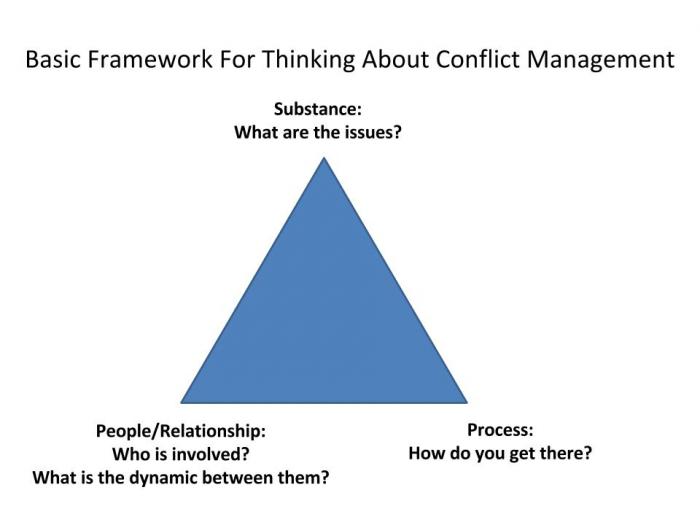Why 'Constructive Conversations'?
You may find yourself in situations where you disagree with someone you are talking to or where you are with people who are disagreeing about something. Handling these situations wisely requires a special set of skills. You will need to know how to help people really listen to and learn from each other, to discover common ground (things they both care about), and to articulate what really matters to them so they can find mutually agreeable solutions. Communities will be better able to make informed decisions if they have a complex understanding of issues AND if they can understand the basis for people’s viewpoints.
Situations where people fundamentally disagree:
- Conflict
- Polarized positions
- Inability to find agreed-upon solutions
At some point, all of us find ourselves in situations where people fundamentally disagree. These situations are characterized by conflict, polarized positions, and an inability to find agreed-upon solutions. Moving conversations beyond conflict and polarized positions requires skills in:
Moving conversations beyond conflict and polarized positions requires skills in:
- Listening to and learning from each other
- Finding common ground
- Looking for solutions that satisfy all
The diagram below offers a framework for thinking about managing conflict. The substance (top of the triangle) is critically important. In this course, “substance” means understanding the science of Marcellus Shale and unconventional gas development, including all the accompanying issues such as energy use, water safety, and community impacts, among others. However, it is difficult to talk about the substance if the process in which you are engaging is lousy—for example, if certain groups are excluded or privileged, if the public is kept in the dark or has little opportunity to shape decisions that affect them, if people perceive the decision makers aren’t hearing their concerns. Finally, people and relationships are essential to managing conflict. It’s also difficult to talk about the substance if we don’t trust or feel respected by the people with whom we are interacting.
Framework for Thinking about Conflict Management

In sum, understanding the substantive issues, in this case, the science is necessary but insufficient for handling and making informed decisions about complex, divisive social-scientific issues. We also need to learn how to relate to people who disagree with us. That is where skills in active listening and mediation come in. You will learn about these topics in a later section of this lesson.